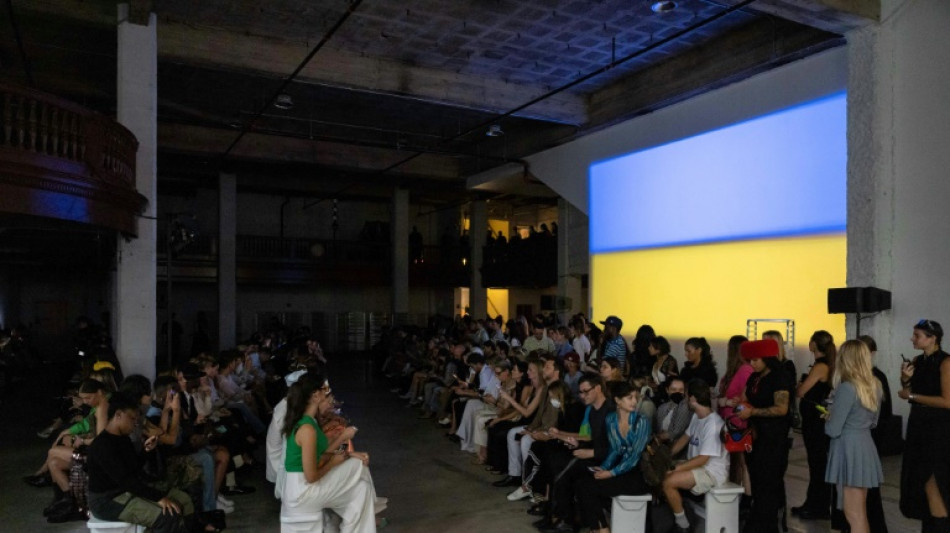
| CMSC | 0.71% | 24.8483 | $ | |
| RBGPF | -1.6% | 59.24 | $ | |
| CMSD | 0.67% | 24.624 | $ | |
| NGG | 0.05% | 63.14 | $ | |
| GSK | 0.45% | 34.115 | $ | |
| BTI | 0.09% | 37.415 | $ | |
| SCS | 3.1% | 13.695 | $ | |
| AZN | 0.6% | 66.025 | $ | |
| RIO | 0.77% | 62.835 | $ | |
| RELX | -0.62% | 46.46 | $ | |
| JRI | 0.9% | 13.33 | $ | |
| VOD | 1.58% | 8.87 | $ | |
| BP | -1.55% | 29.265 | $ | |
| BCE | 0.22% | 26.83 | $ | |
| BCC | 6.67% | 154.06 | $ | |
| RYCEF | -0.74% | 6.75 | $ |

Ukraine designer evokes the pain of war at NY fashion show
Fashion shows rarely begin with a moment of silence, but that is what Ukrainian designer Svitlana Bevza did Tuesday night for her country to decry the Russian invasion.
She went on to present a collection rich in patriotic symbols.
Bevza is an old hand at New York's Fashion Week, where she has appeared since 2017. She is based in Kyiv and has her workshops there but was forced to leave after the invasion in late February, and its endless explosions and sirens, to protect her two children.
Her husband Volodymyr Omelyan, a politician who was a government minisister from 2016 to 2019, stayed home to fight. You can see him on her Instagram account, dressed in military garb and carrying a gun.
Bevza's spring-summer collection, entitled 'Fragile motherland" and unveiled at a building on Wall Street, was highly political. The blue and yellow Ukrainian flag was projected onto a wall.
"Some people maybe do not understand that this is going for real. And today is the 202nd day of war in Ukraine. And there's thousands of people dead," she told AFP.
"I was forced to leave the country with my kids. And my husband is at war," she added.
She presented tops that are sensual when worn with skirts or pants but still recall bullet-proof vests. Some look like shields that expose the shoulders and navel.
Grains of wheat -- symbols of fertile Ukraine as a bread basket to the world -- have a narrative stream through the collection. A Bevza necklace depicts them, charred black because "a lot of wheat was burned by Russians," she said.
The ample cut of some of her skirts also recalls the fit of Ukrainian farm women harvesting wheat.
"There is a deep sacred meaning of the bread itself and the wheat that came through centuries," she said, pointing to famine in the 1930s that was blamed on Stalin.
"What we protect now, we protect the fertile lands. And what we are basically fighting for is to live free, to live in peace in our land," the designer said.
T.Schmidt--HHA



